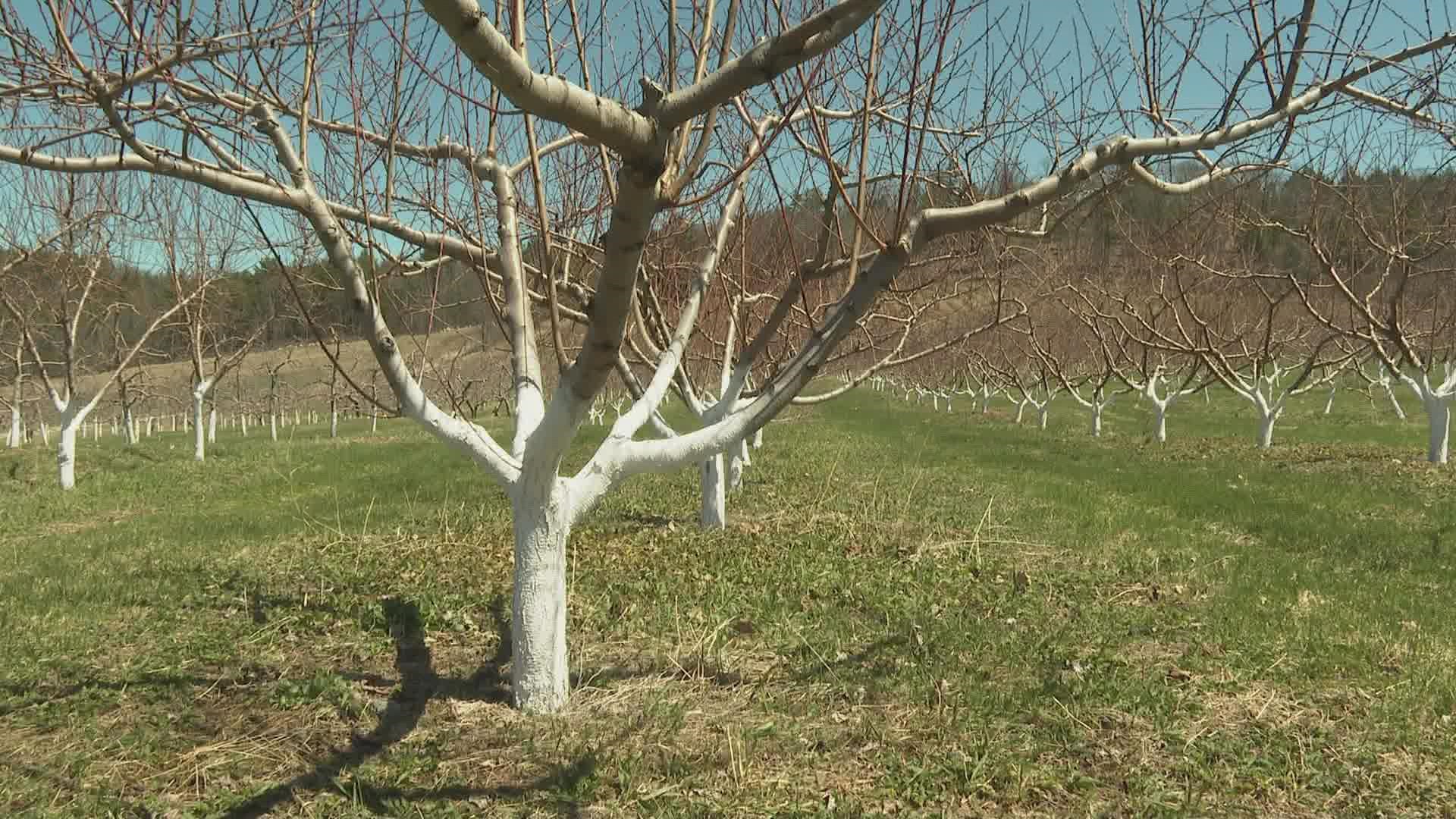LIMERICK, Maine — It’s springtime at the Libby farm in Limerick.
Aaron Libby and his team have been hard at work, trimming bushes and trees across his 40-acre fruit orchard.
On a warm April afternoon, Libby stood at the highest point of his farm and looked down at rows of blueberries, raspberries, plums, and apples.
Still a sea of gray in the spring, it becomes a technicolor tapestry during the summer months.
NEWS CENTER Maine meteorologist Todd Gutner walked the farm with Libby during the spring and summer of 2021. The third-generation fruit farmer explained how he has noticed the effects of climate change on the farm, with milder winters, earlier springs, and unpredictable thaws and cold snaps.
"An earlier season’s great. It gets things going, especially for us. We want to be open the earliest we can be open," he told Gutner. "However, when you get the blossoms open, those blossoms are very, very tender."
During the recent visit, Libby showed detailed charts created by multiple universities that determine how much cold his blueberries can handle at each point in their growth. It’s close to an exact science.
The farm saw an average winter this year, with just enough snowpack to insulate the trees, Libby said. He is on pace for a strong July opening.
But, while he has charts and decades of knowledge on blueberries and apples, downhill from the traditional Maine crops, climate change is allowing Libby to take a gamble on another fruit: peaches.
"Twenty years ago, 30 years ago, to have 5 acres of peaches in the ground would be very risky, that’s for sure," he said. "It’s still risky now, but those are some of the advantages you’re getting with a longer growing season and less cold temps."
Libby said Maine peach farms are still on the northern edge of viability. Luckily, they’re not in this venture alone.
Dr. Renae Moran is a problem solver for Maine farmers.
"Farmers share their experiences with me and they ask me to help them solve their big problems, and little problems, like what varieties to plant," Moran briefly smiled.
The University of Maine tree fruit specialist works with 80 farms. Not only has she observed the rise in peach popularity, she’s busy growing 20 varieties of her own, in a search for the one the produces the best fruit in Maine’s climate.
And it's valuable fruit at that.
"Even though they don’t yield very well, the price makes it worthwhile, and the way peaches can draw in customers makes it worth having them," she said.
Customers have proven they'll come get them.
Libby's farm, Libby & Son U-Picks, is 100 percent pick-your-own, much different from the wholesale operation Libby's ancestors used to work.
If Moran’s work produces hearty trees that become less risky for farmers like Libby, the peach could eventually stop being exotic in our neck of the woods.
It could become just as recognizable as any other fruit during a summer orchard stroll in Maine.

